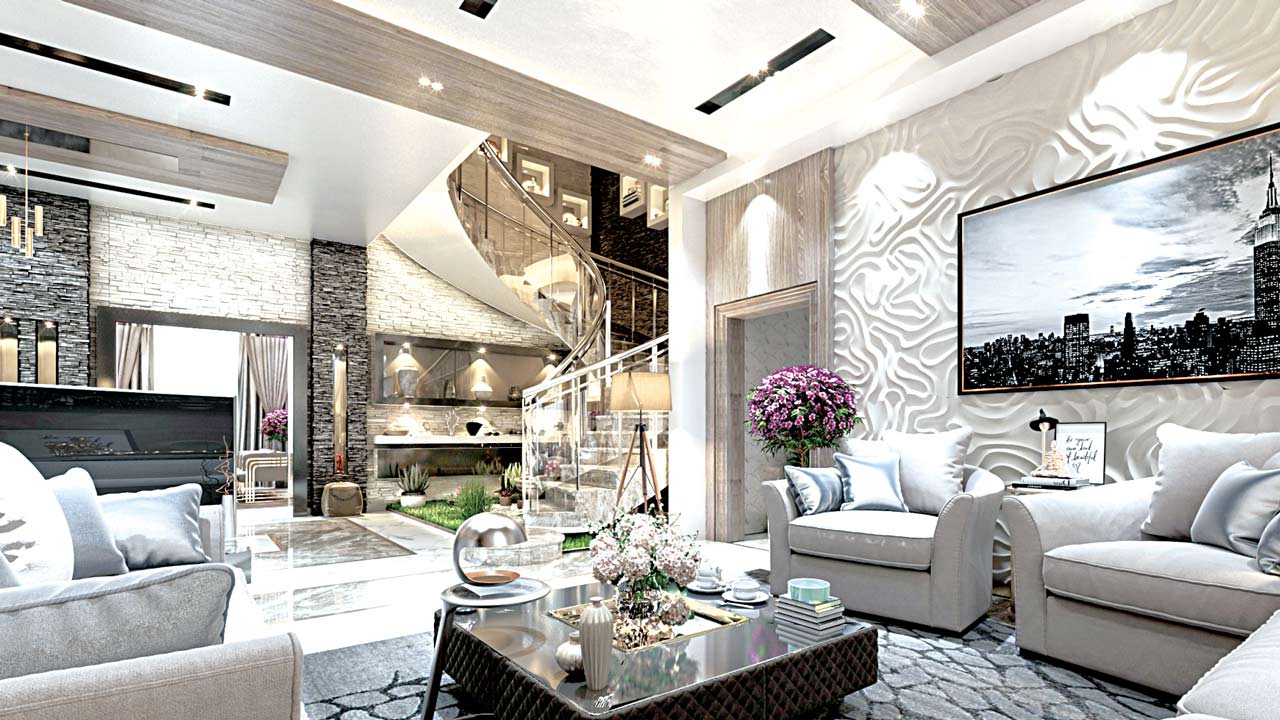After last year’s unpredictability, hopes are high for Nigeria’s real estate as the luxury segment of the market is showing a slight recovery; with significant lifestyle changes in both work, home, and play.
The Guardian learnt that the affluent have continued to realign their priorities to spend more on real estate to provide their families a sense of security, health, safety, and privacy. For the wealthy this means that work, socializing and entertainment takes place in their homes.
Prices of luxury properties have also climbed steadily over the last few months in the luxury markets in major cities such as Lagos and Abuja. Another recent surprise has been the uptick in the number of sales in the attached property market.
Much of this demandstemmed from the growth of the wealthy, both in financial terms and in numbers. These buyers are taking advantage of home prices that did fall slightly and increased vacancy rates that rose significantly due to the COVID-19 pandemic.
Many experts believe that, the high-end luxury property market in Nigeria has experienced a glut. “This is largely due to the general decline in purchasing power and the continued exit of expatriates from the country, especially in the wake of the pandemic,” according to the Senior Partner/Chief Executive Officer, Knight Frank Nigeria, Mr. Frank Okosun.
Okosun said: “There remains some demand from Nigeria’s upper class and political elites, which has kept the segment partially active. The high residential vacancy recorded in prime areas is largely attributed to the luxury segment, as supply continues to surmount demand.”
He disclosed that economic sentiment and unfavorable policies have largely affected the luxury market. “In previous years, the conducive climate for investment have attracted expatriates, foreign players/investors into the country. And, these have become major occupiers of luxury market in the country.
“Stricter government regulations have resulted in eliminating economic bottlenecks like money laundering. This has further led to a slow-down of luxury transactions as more prospective buyers take a more cautious approach.”
However, the Knight Frank CEO noted that the current state and level of demand for smaller apartments has inspired developers to redesign luxury projects to meet current emphasis.
Recent property transactions have shown an impressive turnout in the luxury segment. Currently, projects undergoing construction in the Ikoyi axis of Lagos are making progress to meet completion dates.
A few recently completed luxury projects like Sisi Paris and in Bourdillon are both nearing full occupancy. Others in the pipeline have already recorded half uptake and may achieve full occupancy upon completion.
Okosun said that the future of luxury market remains bright. “As remote working becomes the norm, the need for large-sized houses will grow in demand necessitating developers to revive previous designs.
“However, the emphasis for the luxury segment will be focused on providing smaller and pricier condos. Capital values will continue to decline as developers attempt to adapt to increased construction costs.
“The coronavirus pandemic has triggered an increased attention on the short-stay segment of the residential market. This will likely affect the luxury market in the short run.”
Other experts believe that the demand for exclusive residential properties that offer larger footprints, provide more amenities such as private outdoor space, touchless technology, numerous home offices, and health perks, including air and water filtration to natural and ambient lighting systems, will still be the driving force of luxury real estate in 2021.
They stated that the trends of 2020 have created a complete shift in lifestyle choices that is unlikely to be reversed.
Among factors that will create a continued strong buyer demand are lower interest rates, low inventory levels, new wealth from sectors that benefitted from the pandemic, a millennial population that is ready to find a safe haven, and significant increase in second home buying as well as upsizing and new properties offering higher wellness standards .
An estate surveyor and Country Managing Partner, Kings Court Realtors Nigeria, Emeka Okoronkwo, said there have been a catharsis in the market. “What was luxury before have become basic. Fortunately, most of the current stocks are in that category. There is super luxury and ultra luxury, which are delineated by location and found in Banana Island and Eko Atlantic.
“The market has metamorphosied into ownership by units, against basic rental to the experts in the past. Executives that can’t stand the chaos in Lekki and preferred better amenities and security are easily picking up a lot of the houses.”
Former president of the International Facilities Management Association (IFMA) Nigeria chapter, Mr. Stephen Jagun, said when you say luxury; it stands by its name. Those who can afford luxury are not moved by the price. Those who also belong to the class must keep up the appearance.
He observed that Nigeria is a cash market; “there is no real mortgage market. For this reason, it is those who have the money that operates therein, which made entrance to luxury class by new entrants more difficult.”
For another estate surveyor and valuer, Mr. Samson Agbato, the financial crises fuelled by low oil price and impact of covid-19 pandemic are major reasons for low demand for luxury property in Nigeria.
“With the rise in oil price and exit of Nigeria economy from recession occasioned by GDP growth of 0.11 per cent in three months, Nigeria’s economy returned to growth after two quarters of contraction. The surprise rebound means the economy may recover faster than expected.”




